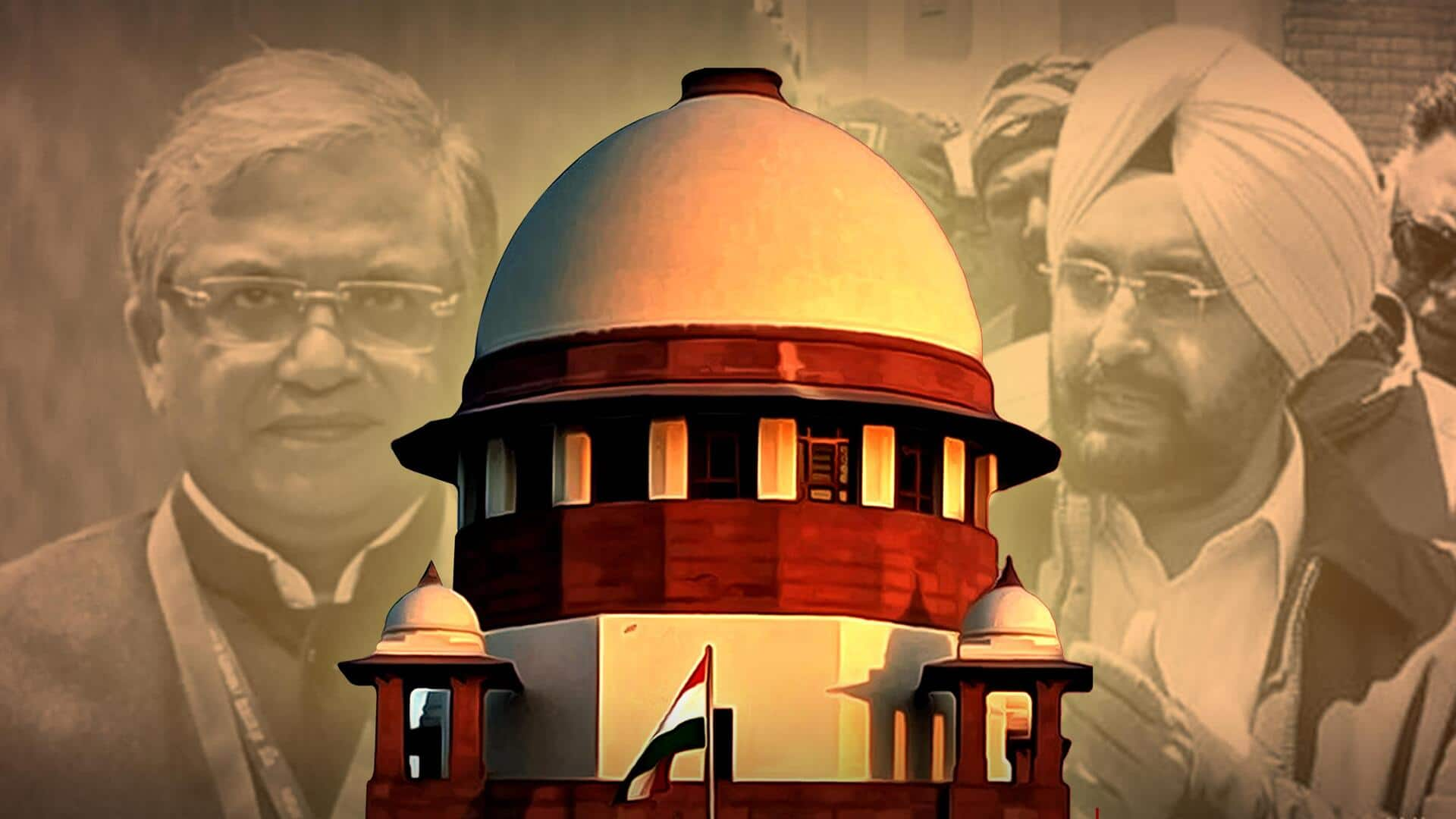
SC refuses to stay appointment of election commissioners
What's the story
The Supreme Court on Friday decided not to halt the appointment of two Election Commissioners, Gyanesh Kumar and Sukhbir Singh Sandhu, whose names were finalized a day earlier. The court will now hear the matter on March 21 (Thursday). Additionally, the apex court has permitted petitioners to submit applications concerning the recent appointment of the two new ECs under a 2023 law, which will also be examined on Thursday.
Context
Why does this story matter?
The SC has scheduled a hearing on March 21 to address pleas challenging the Chief Election Commissioner and Other Election Commissioners Act, 2023. An NGO filed a plea contesting the exclusion of the chief justice of India (CJI) from a panel responsible for selecting the chief election commissioner (CEC) and election commissioners. The NGO contented that the poll panel should be protected from "political" and "executive interference" to preserve a healthy democracy.
On Thursday
PM Modi-led panel selects 2 new election commissioners
On Thursday, Bureaucrats Sukhbir Singh Sandhu and Gyanesh Kumar were chosen to fill two vacant positions in the Election Commission of India. The appointments were made by a panel led by Prime Minister Narendra Modi. The new commissioners were appointed to fill the vacancies at the ECI following Anup Chandra Pandey's retirement in February and Arun Goel's surprise resignation last Saturday.
Vacancies filled
First appointments under new law
Goel's departure had left the ECI with just one member—Chief Election Commissioner Rajiv Kumar. Now, the new commissioners will work alongside Rajiv in preparing for the upcoming Lok Sabha election. Notably, these are the first appointments to be made under the new law—Chief Election Commissioner and Other Election Commissioners Act, 2023. Before the new law came into force, election commissioners were appointed by the President on the government's recommendation and as per custom.
Opposition reacts
Chowdhury criticizes selection process
Congress leader Adhir Ranjan Chowdhury—who was also the member of the high-level panel—criticized the selection process, saying he was given 212 names for review a night before and had asked for a shortlist to examine the candidates. However, he wasn't given a chance to do so. "The majority is with them...they chose the candidates they wanted," he said. He also hit out at the new law, adding that the CJI should have been a part of the selection committee.